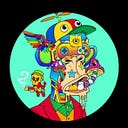Why AI & Machine Learning Are More Important Now Than Ever
Technology is never static. With every age, more and more technologies have been invented, disrupting life all over the globe. From the Financial-Agricultural Revolution of the 18th century to today’s Digital Revolution, technological advancements have been at the forefront of change.
The current revolution has probably been the fastest of them all featuring the most sophisticated technologies to date — Artificial Intelligence (AI) and machine learning. The advent of this mechanization has not been without its challenges however, and it would be unwise to disregard its role in our lives, its importance, and inherent dangers.
Change is occurring at unprecedented levels
Discussing how AI is set to alter how businesses operate, Chief Technology and Innovation Officer at Accenture, Paul Daughterty had this to say, “We’ve never seen a technology move as fast as AI has to impact society and technology. This is by far the fastest-moving technology that we’ve tracked in terms of its impact and we’re just getting started.” We cannot ignore AI and machine learning because they are already affecting us in ways we may not even be aware of.
AI and machine learning are driving the Fourth Industrial Revolution
Artificial intelligence is no longer a futuristic concept. American inventor Ray Kurzweil is convinced that “AI will reach human levels by 2029.” And Professor of Computer Science at Stanford University Fei-Fei Li adds that “AI and the Fourth Industrial Revolution [that we are already living through] will impact every aspect of people’s lives.” AI and machine learning are driving us into the future.
AI and machine learning pose threats to traditional employment
Elon Musk may not have fully understood the implications of his words when he remarked, “AI doesn’t have to be evil to destroy humanity — if AI has a goal and humanity just happens to be in the way, it will destroy humanity as a matter of course without even thinking about it, no hard feelings.” His words could not have been more prophetic. Oxford Economics an analysis firm, projects that AI and machine learning technologies are set to take over 20 million manufacturing jobs worldwide by 2030. It’s a problematic situation seeing as the United Nations estimates that there will be at least 1.3 billion young people looking for employment in the same year.
The perceived benefits of AI and machine learning
Fortunately, it’s not all doom and gloom where AI and machine learning are concerned. Artificial intelligence and machine learning are extremely useful in that we can use robots to carry out some very dangerous tasks and missions such as exploring space, the depths of the oceans, abandoned minefields, and shutting down thermal power plants in the event of explosions.
AI has simplified our day-to-day experiences through applications like OK Google and Siri. In fact, AI is integrated into every app that we use today. Doctors are among some of the key proponents and adopters of this cutting edge technology as highlighted in this Harvard article “Artificial Intelligence in Medicine: Applications, implications, and limitations”.
AI and machine learning are the new normal
From the moment John McCarthy invented the term Artificial Intelligence all the way back in 1950, our world has seen the rapid adoption of this technology in almost every sphere of life. From medicine to banking, aeronautics to sports, AI and machine learning have clearly become such an integral part of life in the 21st century.
A short 70 years ago, talking about machine learning seemed like such an absurdity, that English computer scientist Alan Turing made a hopeful prediction that “….at the end of the century the use of words and general educated opinion will have altered so much that one will be able to speak of machines thinking without expecting to be contradicted.”
What seemed ludicrous in the previous century, has now become the norm in the next. With so many problems to tackle in our world, AI and machine learning have never been more important than now.
